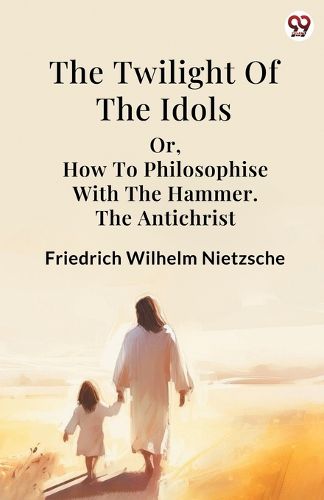Readings Newsletter
Become a Readings Member to make your shopping experience even easier.
Sign in or sign up for free!
You’re not far away from qualifying for FREE standard shipping within Australia
You’ve qualified for FREE standard shipping within Australia
The cart is loading…






The Twilight of the Idols, How to Philosophise with the Hammer: The Antichrist, is a critical philosophical treatise that challenges traditional values and beliefs, particularly those rooted in religious and moral doctrines. Nietzsche argues for a "transvaluation" of values, aiming to destroy long-held idols that he believes hinder individual vitality and life-affirmation. The work criticizes societal norms and philosophies that promote decay and resentment rather than fostering strength and flourishing. Nietzsche sets the stage for a profound critique of Western thought, urging a rethinking of morality and questioning the relevance of the "old truth." He asserts that current interpretations of morality are detrimental, encouraging a life-negating stance. Through this critique, Nietzsche envisions a new understanding of existence one that prioritizes personal empowerment and vitality over rigid moral codes. The text serves as a rallying cry for those seeking to break free from oppressive ideologies and to embrace a philosophy that celebrates life in its fullest expression.
$9.00 standard shipping within Australia
FREE standard shipping within Australia for orders over $100.00
Express & International shipping calculated at checkout
Stock availability can be subject to change without notice. We recommend calling the shop or contacting our online team to check availability of low stock items. Please see our Shopping Online page for more details.
The Twilight of the Idols, How to Philosophise with the Hammer: The Antichrist, is a critical philosophical treatise that challenges traditional values and beliefs, particularly those rooted in religious and moral doctrines. Nietzsche argues for a "transvaluation" of values, aiming to destroy long-held idols that he believes hinder individual vitality and life-affirmation. The work criticizes societal norms and philosophies that promote decay and resentment rather than fostering strength and flourishing. Nietzsche sets the stage for a profound critique of Western thought, urging a rethinking of morality and questioning the relevance of the "old truth." He asserts that current interpretations of morality are detrimental, encouraging a life-negating stance. Through this critique, Nietzsche envisions a new understanding of existence one that prioritizes personal empowerment and vitality over rigid moral codes. The text serves as a rallying cry for those seeking to break free from oppressive ideologies and to embrace a philosophy that celebrates life in its fullest expression.